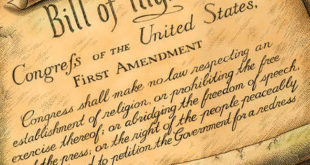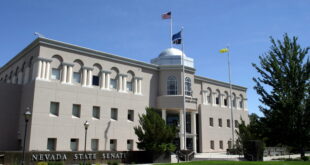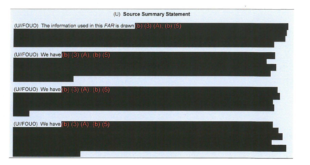Sen. Aaron Ford’s initiative to bring body-worn cameras to all police agencies in Nevada (SB176) would use fees on telephone service to fund them.
Here’s the Las Vegas Review-Journal’s story and the Nevada Independent’s live-tweet coverage of Monday’s hearing in the Senate Government Affairs Committee.
I spoke in favor of the bill because it keeps intact language from Ford’s bill in 2015, which placed body cams on Nevada Highway Patrol officers, for how the videos may be accessed by the public.
Three points:
- They are public records
- They can be requested only on an incident-by-incident basis
- If they contain confidential information, they may be viewed but not necessarily copied
It’s important that the statute declares them to be public records, because police departments must develop their own policies for how body-worn cameras are used. Some may attempt to make them harder to access than others.
The other two points have to do with the cost of copying and redacting video. We were OK with the incident-by-incident limitation as a compromise. The cops were going to fight anything that allowed mass requests — say, for all of a certain officer’s shifts, or for all videos for a week — for the simple reason of the time and cost involved.
As for confidential information, the statute is consistent with the provisions of Nevada’s public-records law which says an agency can’t withhold a document because it contains confidential information if the confidential part can be redacted.
The idea with videos is that a portion of it may show something that is confidential by law. Redacting that portion may be expensive or difficult. So the public would have an opportunity to view the video but not necessarily get a copy of it to make widely available.
I’ve used a couple of examples: An officer asks for ID from a suspect, who briefly holds up a Social Security card to the camera. It might be easy enough to blur out the numbers on the Social Security Card, and a copy of the redacted video could be released.
On the other hand, say an officer is walking into a home past young children in the living room, or interviewing a victim of sexual assault. It would be a matter of weighing privacy interests and the complexity of redacting the video against what would be shown as a matter of public interest. Those should be decided case by case, in my opinion.
I did not testify on the matter of funding the cameras through 911 fees on telephone service, up to $1 a month per line. If asked, however, I would have said they need to be funded in some way, and these fees seem like an appropriate mechanism.
 Nevada Press Association The best in Nevada journalism since 1924
Nevada Press Association The best in Nevada journalism since 1924



